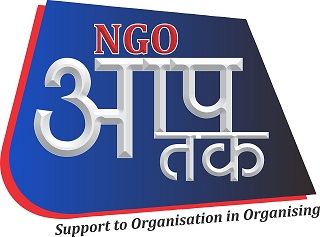we are providing services of 12A and 80G registration in Patna, Bihar. we are a team of experts providing services like NGO registration, Trust registration, Company registration, society registration, partnership firm registration, proprietorship firm, 12a -80g registration, FCRA registration, niti aayog registration, GST registration, iso, trademark, website development.
The complete process of 12a and 80g registration in Patna, Bihar
The process of 12a and 80g registration in Patna, Bihar is as follows:
- The NGO or charitable institution should apply online for 12a and 80g registration on the income tax portal.
- The applicant should fill the Form 10A and upload the required documents, such as the trust deed, registration certificate, PAN card, address proof, etc.
- The applicant should also provide the details of the activities, income, expenditure, and audited financial statements of the NGO or charitable institution for the last three years.
- The Principal Commissioner or Commissioner of Income Tax will issue a notice to the applicant within 15 days from the date of receipt of the application, asking for any additional information or documents.
- The applicant should furnish the information or documents within 15 days from the date of receipt of the notice.
- The Principal Commissioner or Commissioner of Income Tax will pass an order granting or refusing the registration within six months from the end of the month in which the application was received.
- If the registration is granted, it will be valid for five years from the date of approval.
- The NGO or charitable institution should apply for revalidation of the registration at least six months before the expiry of the five-year period .
What are the documents required for 12a and 80g registration in Patna, Bihar?
The documents required for 12a and 80g registration in Patna, Bihar is as Follows:-
– Copy of PAN card of the registered applicant NGO
– Certificate of Incorporation of the NGO
– Trust Deed (in case of a Trust) or Memorandum of Understanding (MOA) and Articles of Association (AOA) of the Company (in case of a Society/Section 8 Company)
– Complete list of welfare activities carried out by the NGO
– Income and expenditure statement, balance sheet, and audited financial statements of the NGO for the last three years
– Income tax portal login ID and password of the applicant
– Contact details (mobile number and email ID) of the applicant
These documents should be uploaded online on the income tax portal using Form 10A or Form 10AB, depending on the nature and status of the applicant. The registration will be valid for five years and will have to be renewed before expiry.
What is the difference between 12a and 80g registration?
- The difference between 12a and 80g registration is that 12a registration provides tax exemption to non-profit organizations on their income, while 80g registration allows donors to claim tax deductions on their donations made to registered charitable institutions. Both 12a and 80g registration apply only to NGOs and charitable organizations.
- To obtain 12a and 80g registration, the NGO or charitable institution should apply online on the income tax portal using Form 10A or Form 10AB, depending on the nature and status of the applicant. The registration will be valid for five years and will have to be renewed before expiry. The registration process will be completely electronic and the order of granting or refusing the registration will be passed within six months from the date of receipt of the application.
How can I check if an NGO is registered under 12a or 80g?
To check if an NGO is registered under 12a or 80g, you can follow these steps:
- Visit the income tax portal and click on the box “Tax Information and Services”.
- Select “Tax Exemption Institutions” from the list of services.
- Enter the name, PAN, or approval section of the NGO you want to check and click on “Search”.
- You will see a list of NGOs matching your search criteria. Click on the name of the NGO you are interested in to see its details.
You will see information such as the address, approval section, date of order, date of withdrawal, and remarks of the NGO. If the NGO has a valid registration under 12a or 80g, it will be mentioned in the approval section and the date of withdrawal will be blank. If the NGO does not have a valid registration or its registration has expired, it will be mentioned in the remarks section.
Alternatively, you can also check the DARPAN portal of Niti Aayog, which is a platform for NGOs to register and share information with the government. You can search for NGOs by name, state, sector, or keyword and see their details such as registration number, PAN, 12a status, 80g status, etc. However, this portal may not have updated information for all NGOs. Therefore, it is advisable to cross-check with the income tax portal for confirmation.
Can an NGO apply for 12a and 80g registration simultaneously?
Yes, an NGO can apply for 12a and 80g registration simultaneously or separately. However, if the NGO wants to apply for them separately, it must first obtain the 12a registration before applying for the 80g registration. This is because the 80g registration requires the NGO to have a valid 12a registration as a prerequisite.
The 12a registration provides tax exemption to the NGO on its income, while the 80g registration allows the donors to claim tax deductions on their donations made to the NGO. Both these registrations are beneficial for the NGO as they enhance its credibility and attract more funds from various sources.
The process of applying for both the 12a and 80g registrations is similar and involves filling out an online application form on the income tax portal34. The NGO should also submit the required documents, such as the trust deed, registration certificate, PAN card, address proof, etc., along with the application form. The income tax department will issue a notice to the NGO within 15 days of receiving the application, asking for any additional information or documents. The NGO should furnish the same within 15 days of receiving the notice. The income tax department will pass an order granting or refusing the registration within six months of receiving the application. If the registration is granted, it will be valid for five years and will have to be renewed before expiry.
Can an NGO claim tax exemption on foreign donations received under 80g?
An NGO can claim tax exemption on foreign donations received under 80g, provided that the NGO has received approval from the government to receive foreign donations, it is registered under Section 80g of the Income Tax Act, and the donation is made via electronic means1. Donations made to foreign trusts and political parties do not qualify for deduction under Section 80g. The NGO should also maintain proper records of the foreign donations and submit them to the income tax department along with the annual return of income.
What is the limit of tax deductions under 80g?
The limit of tax deduction under section 80g depends on the type and category of the donation made by the taxpayer. Section 80g allows for a deduction of either 100% or 50% of the donated amount, with or without restriction, as provided in the section.
The restriction means that the deduction is subject to a qualifying limit of 10% of the adjusted gross total income of the taxpayer. The adjusted gross total income is the gross total income minus certain deductions such as sections 80C to 80U (except section 80G), exempt income, long-term capital gains, and income referred to in sections 115A to 115D.
The donations that are eligible for a 100% deduction without any qualifying limit are those made to certain funds and institutions specified in section 80G, such as the National Defence Fund, the Prime Minister’s National Relief Fund, the National Foundation for Communal Harmony, etc.
The donations that are eligible for a 50% deduction without any qualifying limit are those made to certain funds and institutions specified in section 80G, such as the Jawaharlal Nehru Memorial Fund, the Rajiv Gandhi Foundation, the Indira Gandhi Memorial Trust, etc.
The donations that are eligible for 100% deduction subject to the qualifying limit are those made to certain funds and institutions specified in section 80G, such as the Government or any local authority for any charitable purpose, any authority constituted for housing accommodation or planning development, any notified temple, mosque, gurudwara, church or other place of worship, etc.
The donations that are eligible for a 50% deduction subject to the qualifying limit are those made to any other fund or institution not covered by the above categories or any charitable trust or institution registered under section 12A or 12AA of the Income Tax Act.
To claim the deduction under section 80G, the taxpayer should make the donation through cheque, demand draft, or cash (for donations below Rs. 2,000). The taxpayer should also furnish the details of the donation such as the name, PAN, address, and amount of the donee, and the amount eligible for deduction in the income tax return. The taxpayer should also obtain a receipt from the donee containing these details along with the registration number and validity of the donee under section 80G.
For More Details pls Contact us
#12aonline #12aregistration #12aregistrationonline #80g #80gregistration #80gregistrationonline #12a&80g #12a&80gregistrationonline



